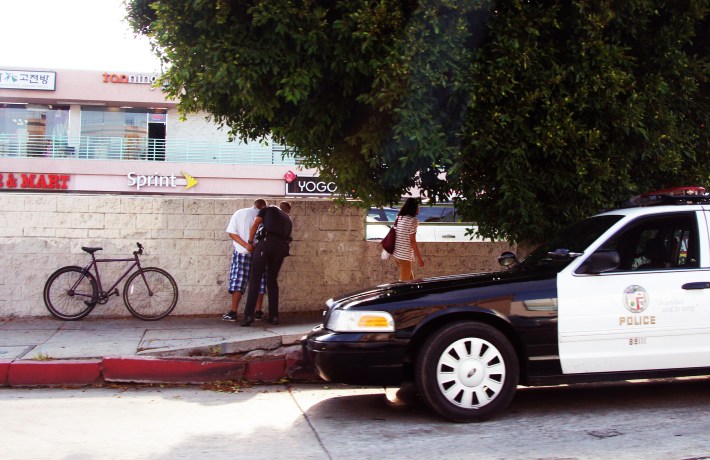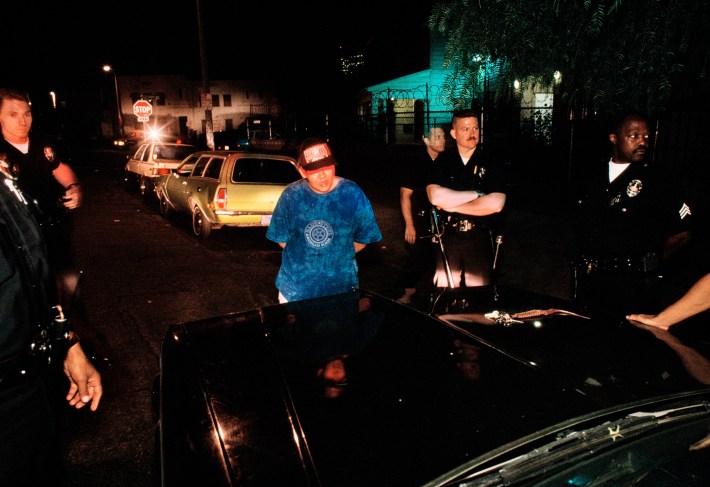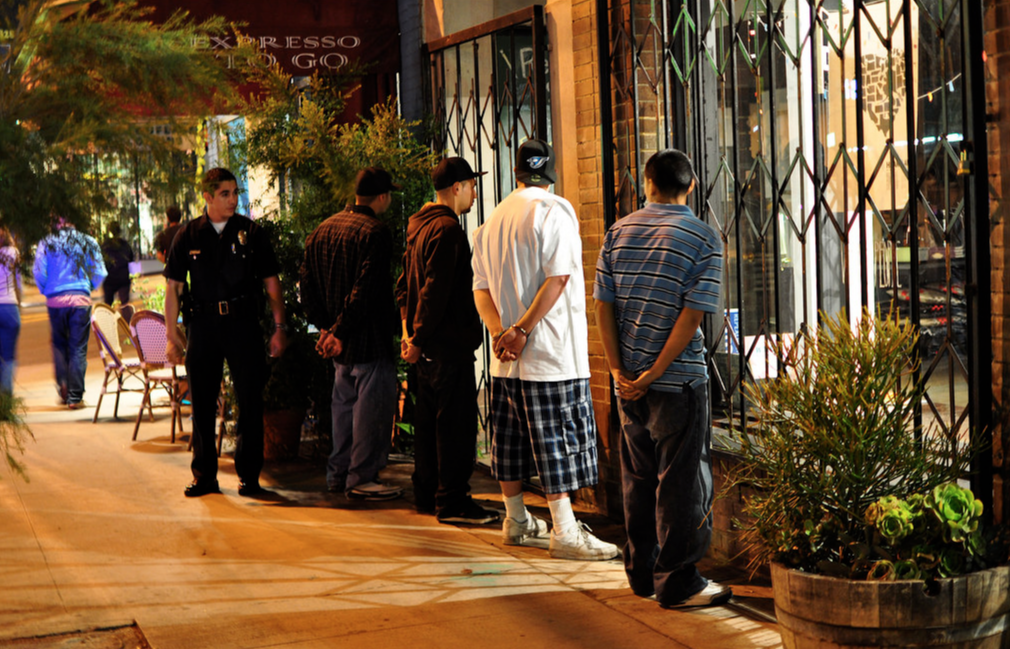[dropcap size=big]A[/dropcap] cop stops a guy for standing in the right-hand turn lane of a busy street while holding an electric scooter, and then pats him down. In this particular case, the police officer didn’t have any justifiable reason for searching him, according to a report released Friday by the Office of the Inspector General that looked at 91 such cases.
“The pat-down was not documented, nor was there any apparent reason to conduct the search during such a low-level detention,” the report concluded.
More than half of similar searches conducted by Los Angeles gang officers on people they stopped last summer were potentially unconstitutional, as the 4th Amendment of the U.S. Constitution protects “against unreasonable searches and seizures.” The L.A. Police Commission discussed the findings of the audit by the Inspector General at its meeting in downtown on Tuesday morning.
RELATED: LAPD Used a Drone for the First Time to Nab Hollywood Robber ~ Video

The report analyzed vehicle, pedestrian and bicycle stops by the Los Angeles Police Department’s Gang Enforcement Detail in July and August 2018. It utilized videos from body-worn and dashboard cameras to compare the statements and actions by police officers.
The reported noted that the vast majority of stops — about 85 percent — by officers met constitutional standards. Problems arose when officer then searched people or vehicles. Some 54 percent of the searches may have violated the Constitution or had other problems, such as lack of documentation, according to the Inspector General’s report.
The L.A. Police Commission, which oversees the city’s police department, requested the report as part of an examination of stops performed by units that focus on so-called “proactive policing,” where officers initiate contacts with the public rather than responding to calls.
A second report is expected to come out during the second half of this year. That report will focus on the LAPD’s elite Metropolitan Division, which started making far more stops after expanding in 2015.

[dropcap size=big]M[/dropcap]ayor Eric Garcetti on January 28 called for an audit of Metro Division, just days after an L.A. Times investigation found Metro officers stopped black motorists at a rate as much as five times their population. It was Garcetti who had called for the expansion of Metro as part of crime suppression strategy in his State of the City speech in April 2015.
“Garcetti was speaking from both sides of his mouth calling for an audit,” Hamid Khan told L.A. Taco. Khan is a leader of the Stop LAPD Spying Coalition. “It was Garcetti who extolled and praised these elements just last year. So, he is very responsible for what’s going on.”
Unlike regular patrol officers, Metro officers often spend their entire shifts on vehicle stops and other proactive policing tactics intended to root out violent criminals. The LAPD’s Gang Enforcement Detail employ the same tactics.
The gang enforcement units are successors to the LAPD’s infamous CRASH gang units, which were renamed and restructured after the Rampart scandal in the late 1990s involving more than a dozen officers and allegations of improper shootings, evidence planting and false arrests.
“Gang Enforcement Detail is engaged in proactive policing,” Khan said. “It is the same thing as the racial profiling that the Metro Division was engaged in that the Times exposed last week.”






